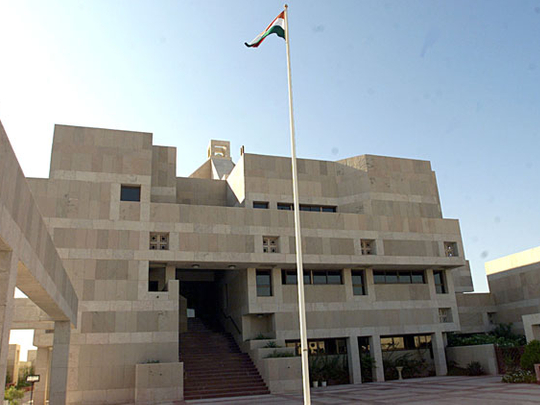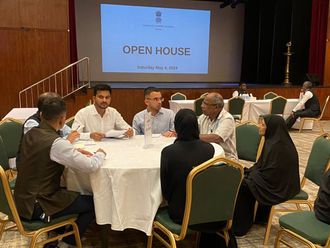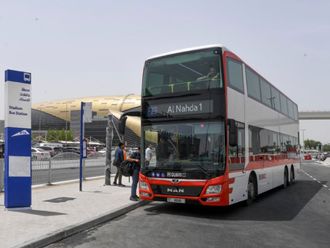
Dubai: New Delhi will soon set up an Income Tax office in Abu Dhabi to keep an eye on investments made by wealthy Indians in the emirates, XPRESS can exclusively reveal. The UAE is among seven countries chosen for the project.
"There is a proposal to set up an overseas Income Tax unit in Abu Dhabi," Indian Ambassador to the UAE M.K. Lokesh told XPRESS on Sunday, adding that its scope and functions are being determined.
Asked when the unit will come into force, he said, "It is not at a stage where I can give you more details. If the proposal materialises, we will have to take several approvals, including those of the local authorities here."
However, sources told XPRESS the income-tax overseas unit is likely to start functioning in two months. Similar offices will operate from the United States, United Kingdom, Germany, France, Netherlands, Japan and Cyprus. Two such units already exist in Mauritius and Singapore.
The need for such units, the sources said, is to facilitate investigations into cases of tax evasion by rich Indian individuals and institutions and ensure their compliance with the Double Taxation Avoidance Agreement and other treaties on exchange of financial information.
The sources said the step had been necessitated as an increasing number of Indians are making investments in countries like the UAE without declaring them.
Recently, the Income Tax Department slapped a notice on Bollywood star Shah Rukh Khan for not paying tax on a Dh14.4 million villa in Palm Jumeirah.
Indian nationals, who are amongst the top investors in the real estate market of the UAE, also figure amongst the top high networth individuals (HNIs) in the emirates.
According to some estimates, they have invested over Dh6.5 billion in the real estate sector in Dubai alone. While the majority of the buyers are Indians living within the UAE, 10 per cent of them are believed to be living in India or otherwise.
The move to set up the Income Tax cell comes close on the heels of the proposed changes in the new Indian Direct Tax Code (DTC) 2010, which makes NRIs liable to pay tax if they stay in India for over 60 days a year, instead of the current stipulation of 182 days under the Income-Tax Act.
If passed, the Direct Tax Code (DTC) Bill, tabled in Parliament last year, will come into force from April 1, 2012.
Mixed reactions
Veterans of the Indian business community have reacted with mixed feelings about the proposed overseas income-tax cell and the DTC.
Sudhir Shetty, CEO of the UAE Exchange, told XPRESS: "I welcome the move to set up the overseas IT cell as there could be avenues that are being misused. Every country needs to plug such loopholes."
He said the cell would also be of help to NRIs here to understand the implications of the investments they make. "People in this part of the world often engage professionals to understand the rules. Now, we will be able to get access to authentic information," he said.
However, Shetty said the Direct Tax Code will have a negative impact on NRIs living in the Gulf region – estimated to be over five million - as they have to make multiple trips to India in view of their medical and family requirements.
"We must understand that a lot of people leave their families back home and work here," he said.
Asked whether it would impact the flow of remittances, he said, "It is unlikely that they would be impacted as they are meant for domestic commitments."
He said according to World Bank estimates, 30 to 35 per cent of the estimated $52 billion remittances by NRIs worldwide came from the Gulf last year.
Mohan Jashanmal, another prominent Indian businessman, said the move to set up the IT unit was more of a "hindrance". "Creating such a cell in an area where there are no taxes is not advisable. Where is the question of declaring assets when the country they are in does not tax them?" he asked.
He said, "Abu Dhabi is looking at investments in India which should open up its economy to encourage investors."
Vashu Shroff, Chairman of Regal Traders, said, "This is very disturbing for Indians in the UAE."
"I cannot understand why NRIs here are being compared to Indians in the UK or US. What will the fate of the working class be if they are taxed?"
Dr L.M. Pancholia, Partner, Meghanmal Jethanand Group, said he preferred not to comment on the developments until he had full information about them.










